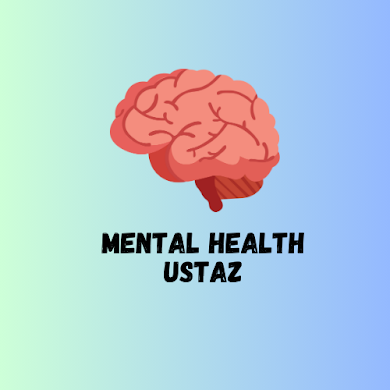
## Introduction
In the rollercoaster of life, we often encounter two
unwelcome passengers—Anxiety and Depression. They lurk in the shadows,
affecting our daily existence. But which one is worse? Let's embark on a
journey to unravel the complexities of these emotional states.
## Table of Contents
| Sr# | Headings |
|------|-------------------------------|
| 1. | [Defining
Anxiety and Depression](#defining-anxiety-and-depression) |
| 2. | [The Mental
Tug-of-War](#the-mental-tug-of-war) |
| 3. | [Physical
Manifestations](#physical-manifestations) |
| 4. | [Social
Implications](#social-implications) |
| 5. | [Root
Causes](#root-causes) |
| 6. | [Seeking
Help](#seeking-help) |
| 7. | [Treatment
Approaches](#treatment-approaches) |
| 8. | [Living with
Anxiety](#living-with-anxiety) |
| 9. | [Living with
Depression](#living-with-depression) |
| 10. | [Finding
Balance](#finding-balance) |
| 11. | [The
Importance of Self-Care](#the-importance-of-self-care) |
| 12. | [Impact on
Relationships](#impact-on-relationships) |
| 13. | [Breaking the
Stigma](#breaking-the-stigma) |
| 14. | [Building
Resilience](#building-resilience) |
| 15. |
[Conclusion](#conclusion) |
## Defining Anxiety and Depression
**Anxiety** and **Depression** are not just words; they are
states of being that many grapple with daily. Anxiety involves excessive worry,
fear, and apprehension, while Depression manifests as prolonged sadness and a
sense of hopelessness.
## The Mental Tug-of-War
In the battle between anxiety and depression, it's not a
clear-cut competition. The mind becomes an arena where both adversaries grapple
for dominance, leaving the individual emotionally drained.
## Physical Manifestations
**Anxiety** often brings palpitations, sweaty palms, and a
constant feeling of restlessness. On the flip side, **Depression** can lead to
fatigue, changes in appetite, and even unexplained aches and pains.
## Social Implications
While **anxiety** may make social interactions seem
daunting, **depression** can lead to withdrawal, causing individuals to retreat
from the world around them. Both can cast shadows on personal relationships.
## Root Causes
Understanding the root causes is crucial. **Anxiety** might
stem from uncertainty, while **depression** can often find its roots in
unresolved past traumas. Identifying these origins is key to effective
management.
## Seeking Help
Seeking support reflects
resilience, not fragility. Whether it's talking to friends, family, or a
professional, opening up about your struggles can be the first step toward
healing.
## Treatment Approaches
The good news is that both **anxiety** and **depression**
are treatable. From therapy to medication, various approaches exist. What works
can vary from person to person, highlighting the importance of personalized
treatment plans.
## Living with Anxiety
Living with **anxiety** means learning coping mechanisms.
Mindfulness, breathing exercises, and positive affirmations can be powerful
tools in managing anxious thoughts.
## Living with Depression
**Depression** requires a different set of coping
strategies. Establishing routines, incorporating physical activity, and
connecting with supportive communities are vital components of managing
depression.
## Finding Balance
Striking a balance between addressing **anxiety** and
**depression** involves acknowledging both and creating a holistic approach to
mental well-being.
## The Importance of Self-Care
Self-care is not a luxury; it's a necessity. Both conditions
underscore the significance of self-care practices, emphasizing the need to
prioritize mental health.
## Impact on Relationships
**Anxiety** and **depression** can strain relationships.
Communicating openly, providing support, and fostering understanding are
crucial in navigating the challenges these conditions pose.
## Breaking the Stigma
Shedding light on mental health struggles helps break the
stigma associated with both **anxiety** and **depression**. Awareness fosters
empathy and understanding.
## Building Resilience
In the face of **anxiety** and **depression**, resilience
becomes a superpower. Developing resilience involves cultivating a mindset that
can bounce back from adversity.
## Conclusion
As we explore the intricacies of **anxiety** and
**depression**, it's evident that declaring one worse than the other
oversimplifies the complex tapestry of mental health. Each individual's
experience is unique, and the path to healing is multifaceted.
## FAQs (Frequently Asked Questions)
**Q1: Can anxiety and depression coexist?**
Yes, it's not uncommon for individuals to experience both
anxiety and depression simultaneously.
**Q2: How long does it take to recover from anxiety or
depression?**
Recovery varies for each person. It depends on factors like
severity, treatment adherence, and individual resilience.
**Q3: Can lifestyle changes help manage anxiety and
depression?**
Absolutely. Healthy lifestyle choices, including exercise, a
balanced diet, and sufficient sleep, contribute significantly to managing these
conditions.
**Q4: Is medication the only solution for anxiety and
depression?**
No, medication is one approach. Therapy, support networks,
and lifestyle changes also play crucial roles in managing these conditions.
**Q5: Can you outgrow anxiety or depression?**
While some may experience remission, it's essential to focus
on managing symptoms rather than expecting complete outgrowth.
In conclusion, the journey through **anxiety** and
**depression** is challenging, but not insurmountable. Understanding, empathy,
and a proactive approach to mental well-being can turn the tide, fostering a
brighter tomorrow.
get more help (https://www.webmd.com/depression/depression-or-anxiety)




0 Comments